This article is also available in: 日本語
Hi, this is Mizuki! It has been a while since I posted the last article.
I have been in New York City (NYC) since last week. You might think, “Wait, you are living in New York, right!?” Well, I live in Syracuse, which is a city in New York State and is 5 hours drive or 1 hour flight away from NYC. Although it is still in the same state, environments and people in Syracuse and in New York City are totally different!
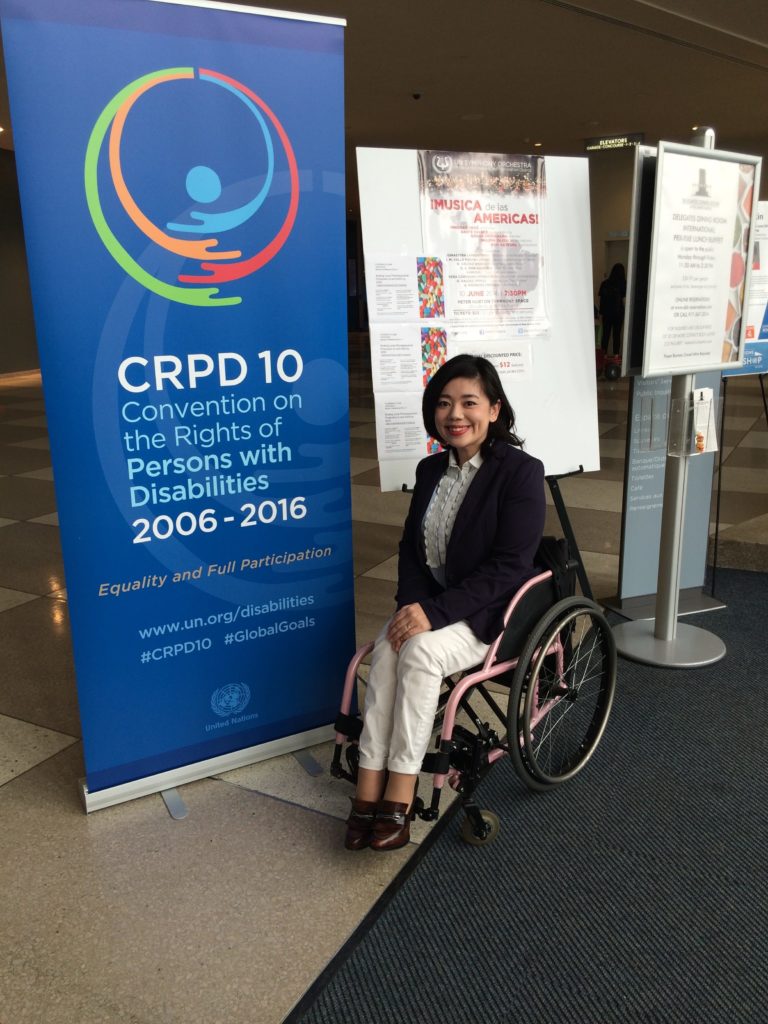
The main purpose of visiting NYC is to attend the 9th session of the Conference of State Parties to Convention on the Rights of Persons with Disabilities (CRPD) at United Nations Headquarters in New York. The convention is international level rules that protect rights of people with disabilities. The text was adopted by the United Nations General Assembly in 2006, and Japan signed in 2007 to agree with the convention and confirmed officially in 2014 after improved domestic policies for people with disabilities. This year in April, the Act for Eliminate Discrimination Against Persons with Disabilities came into force in Japan. This is one of the improvements that Japanese government has implemented to comply with CRPD.
Usually only people from government and NGO can attend The Conference of State Parties to CRPD. Fortunately and fortuitously, Burton Blatt Institute where I work with right now has registered so I could join this conference. The main conference room was just like a scene of an international conference that I had seen on TV. The names of member country were displayed on the aligned tables. Attendees wore an audio translation tool on ears. It was just amazing!
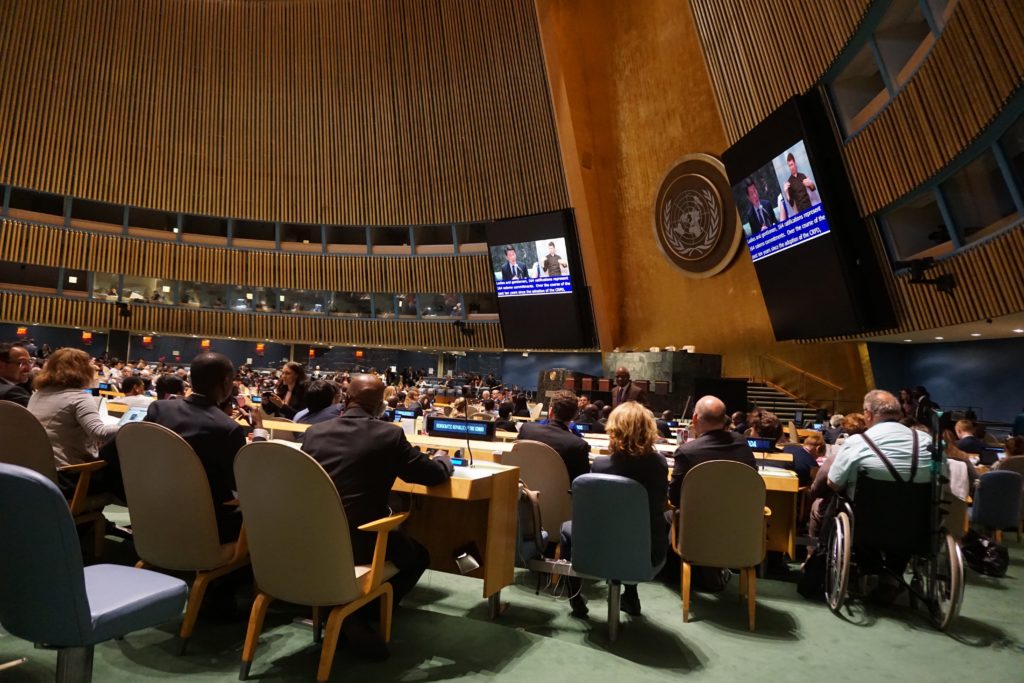
When I think about “conference” in general, I imagine at first there is a topic to discuss and attendees share ideas and opinions, and finally decide actions to take as next. However, this conference, it seems that each country already prepared a statement in advance, and mainly report to the President of conference what the country has done since last conference and what they are going to do from now on in the limited given presentation time. Each country take turns to report after another. Japan stated that they continuously would improve the policy and environment as per CRPD, they would make a society which can welcome people from other countries toward Tokyo Olympic and Paralympic games in 2020, as well as a report of the Act for Eliminate Discrimination Against Persons with Disabilities which was effected in April this year.
After the 1st day of conference, I was actually worried, “Is this meaningful to me although I’m just listening to each country’s statement and report…?” Then my friend who also came from Syracuse told me,
This is not all about getting information from the conference. See people around you. They come here for reunion and networking as well. That is why people chat, take a picture, or get out from the room and have a coffee with other people in the middle of conference.
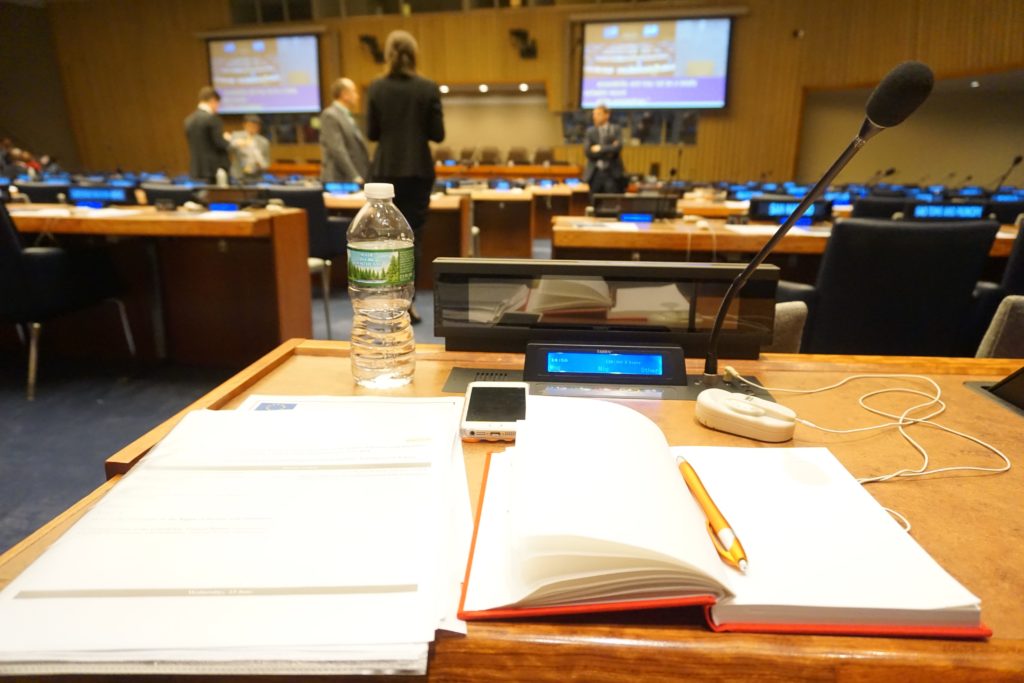
He was right. I felt and saw a real international conference BUT many people were talking and moving around freely during the conference, and I felt awkward. Thanks to my friend, I could become more relaxed. From the 2nd day, I attended side events which talked about employment for people with disabilities, women with disabilities, and accessible tourism and so on. In those events, I could connect with and share opinions with people from Indonesia, Bangladesh, Pakistan and Sweden. Also I even met people from JICA (Japan International Cooperation Agency) from Japan and exchanged experiences. I am looking froward to meeting them again after going back to Japan.
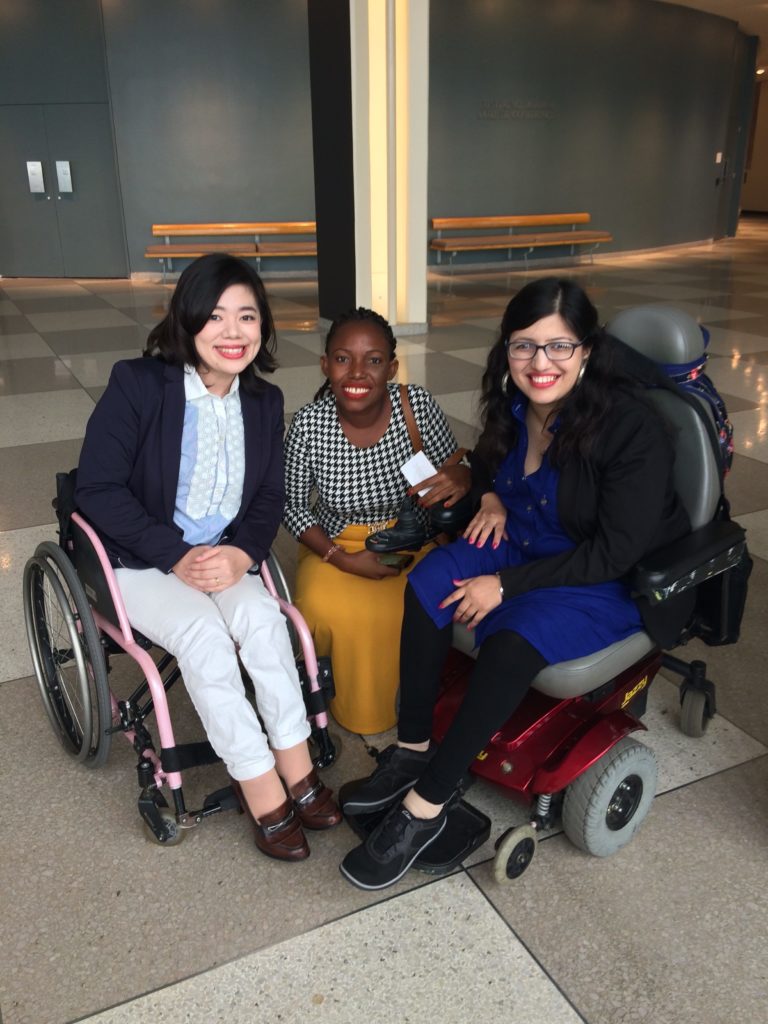
Through the 3 days of the conference, the most important thing that I found is we need to promote the empowerment of women with disabilities.
On the first day, 9 committees were elected for this convention and one of them was actually from Japan, Mr. Jun Ishikawa. Including him, all new 9 committees were males. Because of the result, many people raised the issue of gender equality during the conference. People mentioned that each country has to improve the empowerment of women at first so that more women would be able to become committees in 2 years which is the next election for CRPD.
Also, I saw that many women with disabilities from developing countries had attended this conference as leaders of their country or NGO, and spoke up strong messages to other countries in panel discussions. From Japan, only one woman with disabilities (excluding me) attended. From South Korea, a country close to Japan, I have seen at least 5 women Moon Riders (=wheelchair user), a term I use to refer to wheelchair users. They passed out the invitation flyers to people, arranged the conference room, and shared information of accessibility of Korea with the audience.
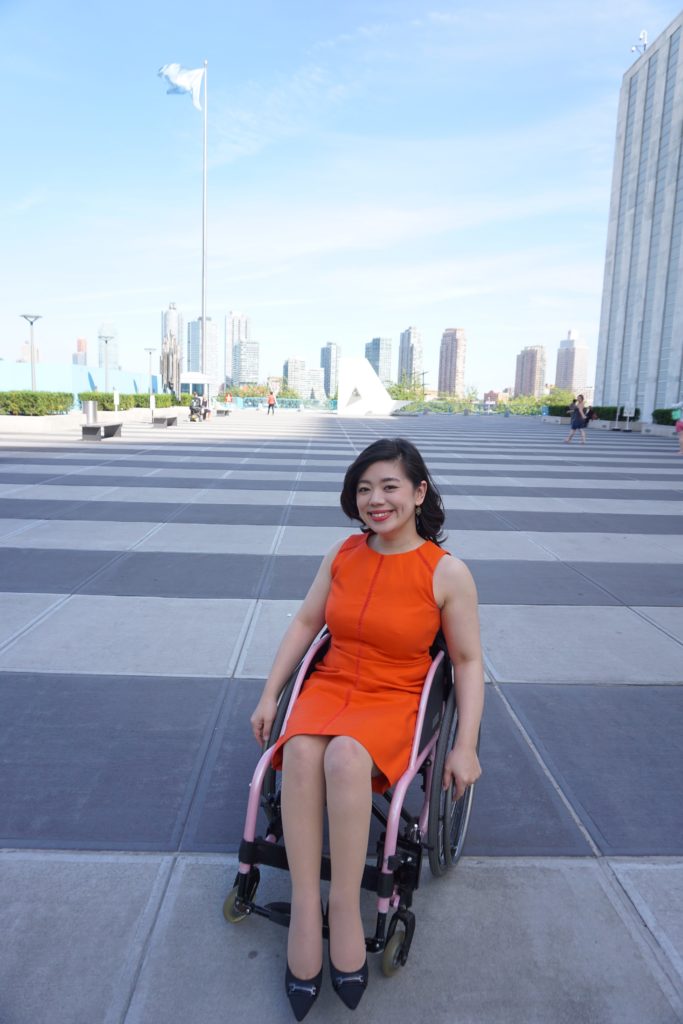
Promotion of empowerment of women is one of the main focuses of Japanese government, and I believe that women with disabilities is an important topic too. After talking people from JICA, Japan does not have an advocacy organization of women with disabilities though it has many organizations for people with disabilities, which are separated by disability kinds. By having more women with disabilities who have leadership skills and can send message to the world, Japan can be more advanced in diversity & inclusion as well as gender equality. I would like to continue on finding what I can do in Japan as a woman with disabilities to improve Japan.
